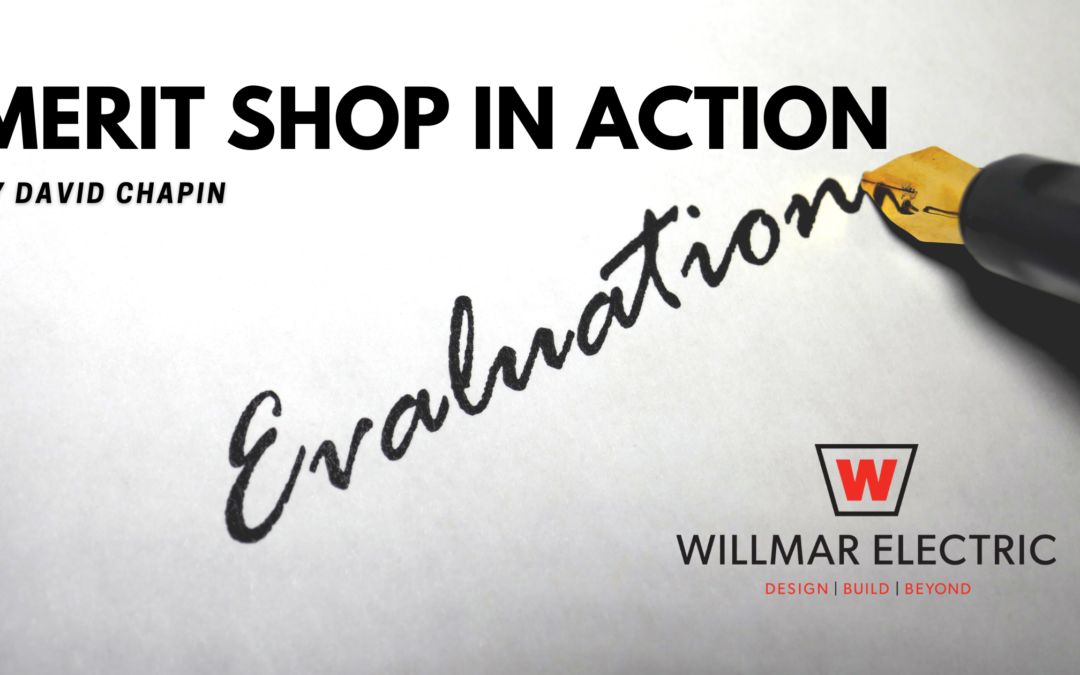Merit Shop is one of our core values. It would be impossible to call ourselves a Merit Shop if we didn’t do individual evaluations.
At Willmar Electric, evaluations are a two-part process. Part one is the performance evaluation. February is performance evaluation time at Willmar Electric.
It is a fun time for all. Well, almost everyone. I have been told by a few evaluators, this is their least favorite part of their job.
Every evaluation involves at least three people. The coworker being evaluated, an evaluator, and a representative from the Human Resource (HR) department. One of the HR representatives is me. This year, I am handling most HR spots because of a critical HR coworker’s passing.
I’m sure you’re feeling sorry for me, but please don’t. I have a degree in this field plus, I volunteered for extra duty because I like helping. But over three weeks, I will go to eighty or more evaluations.
I’m happy to report the person being evaluated has yet to be surprised about any of the evaluations’ feedback. At Willmar Electric, we take this as a sign that our supervisors are doing an excellent job throughout the year of letting people know how they are doing.
Everybody wants to know how they do through the year. Nobody likes having people save up their feedback only to have it dropped like a giant bomb at the end of the year. Corrective feedback lets the person improve as soon as possible. Nobody wants to continue to do things incorrectly. Positive feedback builds self-worth and lets people know you appreciate them and their contributions.
Another positive trait all the evaluations have included is both positive and corrective feedback. Even though it can be uncomfortable to let somebody know about a shortcoming, our evaluators move forward with corrective feedback because they know it helps everybody and the company improve.
For about 90% of the review, I sit and do nothing. (If you have ever been to a meeting with me, you likely wish I took this tactic more often). Then as the evaluation wraps up, I ask a series of questions.
- Is there anything your supervisor could do to help support you better?
- If you ran Willmar Electric is there anything you would do differently?
- What do we do well at Willmar Electric?
- What training do you think you need in the next year?
- Does your supervisor understand your strengths and weaknesses?
- Do you think you got a fair review?
Most of the time, the person has very little feedback. Admittedly, they aren’t easy questions. But when we get an answer, we record it and thank the coworker.
Regardless of whether the person has answers to my wrap-up questions, we say the same thing every time. “Keep in mind the evaluator is giving you feedback, both positive and corrective, throughout the year, so don’t be afraid to give us feedback throughout the year.”
Like I said in the introduction, it is a two-part process. Part two is a wage evaluation. They happen in March, and like their cousin, the performance evaluation, they are done individually. Why? Because the way to be fair to everybody is to recognize their individual contribution to the organization.

